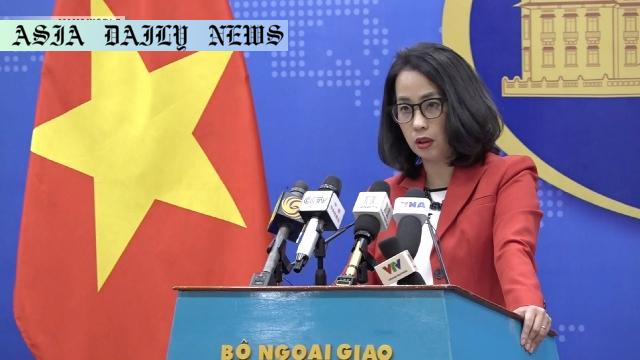Vietnam BRICS: Vietnam becomes the 10th partner country of BRICS, ready to collaborate on trade, investment, and global peace initiatives.

Vietnam’s Historic Entry into BRICS
Vietnam has achieved a significant milestone by officially joining BRICS as the 10th partner country. This marks the nation’s commitment to expanding its global collaboration with some of the world’s fastest-rising economies, including Brazil, Russia, India, China, and South Africa. While partner countries like Vietnam lack immediate decision-making power within this economic alliance, their participation opens doors to vital discussions and involvement in BRICS Leaders’ Summits.
This move comes as BRICS undergoes significant expansion, with membership now extended to 11 nations. Countries from various global regions, including the Middle East and Southeast Asia, have shown determination to deepen economic ties with BRICS, reflecting a shared desire to foster independence from the US dollar-centric finance system. Vietnam’s foreign ministry representative, Pham Thu Hang, highlighted how the partnership aligns with the country’s goals of promoting peace, stability, and mutually beneficial growth in both regional and global contexts.
Strengthening Trade and Investment Opportunities
One of the central reasons behind Vietnam’s enthusiasm for joining BRICS is its eagerness to enhance trade and investment engagements with member countries. Already a burgeoning regional economic powerhouse, Vietnam can leverage BRICS as a platform to diversify its economic horizons beyond traditional markets. By aligning its programs with BRICS-driven initiatives, Vietnam can create new avenues for growth while addressing its development challenges collaboratively. From technological cooperation to infrastructure development, the scope of potential synergies between Vietnam and other BRICS members is immense.
Vietnam’s geographical significance as a gateway to Southeast Asia, coupled with an export-driven economy, positions it as a crucial partner for BRICS members looking to expand their trade networks and investments. It is also worth noting that this partnership could strengthen the bonds between ASEAN member states and BRICS, fostering larger regional economies of scale.
Shaping Multilateral Cooperation and Regional Peace
Vietnam’s inclusion in BRICS is not only about economic growth but also about contributing to shared global responsibilities. The country has expressed a clear intent to pursue initiatives that align BRICS strategies with other multilateral frameworks. As Vietnam positions itself as a bridge between nations, it could amplify the group’s role in mediating and resolving global issues ranging from geopolitical tensions to climate change.
Additionally, the partnership provides a solid ground for Vietnam to promote development projects that emphasize inclusivity and sustainability, tackling contemporary challenges such as industrial reform and digital transformation within a cooperative framework. Acting as a mediator within BRICS, Vietnam could play a pivotal role in emphasizing the importance of peaceful cooperation over competing strategies in politically sensitive exchanges.
Challenges and Opportunities for Vietnam
Although Vietnam’s participation in BRICS opens up numerous opportunities, it is not without challenges. As BRICS explores avenues such as de-dollarization and new currency systems for trade, Vietnam’s alignment with such initiatives may pose potential risks, particularly in its relations with Western economies. Nonetheless, the gains from expanded South-South cooperation could offset these risks if managed strategically.
Vietnam’s approach towards addressing economic disparity among its regions can also gain from shared experiences within BRICS. Nations like India and China offer valuable case studies for balancing growth while managing demographic challenges. By making the most out of its partnership status, Vietnam can chart a sustainable development roadmap for itself while solidifying its relevance in global economic and geopolitical dialogues.
Commentary
Vietnam’s BRICS Partnership: A Step Towards Global Influence
Vietnam’s inclusion as a partner country in BRICS is a testament to its growing ambition on the global stage. As the 10th partner, Vietnam has shown its intent to engage with a coalition of powerful emerging economies, highlighting its aspirations for greater economic collaboration and political influence. While the nation lacks decision-making power as a partner, this strategic step provides it with an invaluable platform to contribute to global discussions and initiatives.
Economic Prospects and Regional Synergies
The economic benefits of joining BRICS cannot be overstated. By associating with major economies such as China and India, Vietnam has positioned itself at the center of a dynamic network of trade and investment opportunities. This not only secures its role as a key player in Southeast Asia but also enhances its relevance on a global economic landscape that is shifting towards greater multipolarity. Innovations or technological partnerships forged within BRICS could serve to accelerate Vietnam’s domestic growth across various sectors, including manufacturing, renewable energy, and digitalization.
Leading by Example in Multilateral Cooperation
Vietnam’s readiness to align BRICS strategies with other multilateral frameworks underscores its commitment to cooperative diplomacy. By promoting the ideals of peace and inclusivity, Vietnam could lead by example, encouraging other Southeast Asian nations to explore partnerships within broader economic blocs. This could eventually contribute to greater regional stability and mutual development, especially as the Asia-Pacific remains a critical region in global geopolitics.
A Careful Balancing Act
That said, the partnership is not without challenges. As BRICS continues to advocate for reduced reliance on Western economic institutions, Vietnam may find itself walking a tightrope between aligning with the bloc’s economic ideologies and maintaining healthy trade relations with Western allies. However, Vietnam’s established diplomacy and strategic pragmatism should allow it to navigate these challenges effectively. By carefully balancing its policies, Vietnam could emerge not just as a participant but a significant contributor within BRICS.


